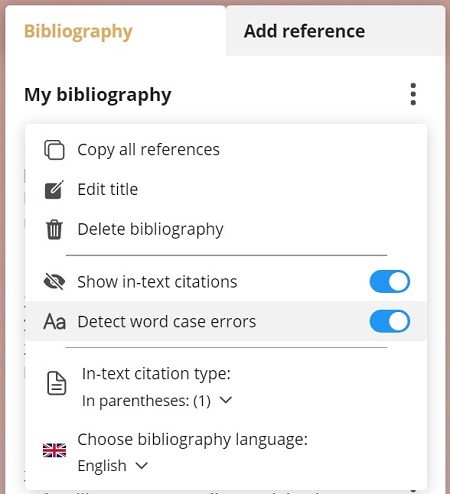We are happy to present the new version of our word case analyser for bibliographic references.
Previously, our tool had been performing one main function: the analysis of the case of source titles depending on the chosen citation style's requirements. Recently, we have also added the function of analysis of subtitles.
The new version of our programme – word case analyser v. 2.0 – offers a much broader range of functions and allows avoiding spelling errors in different elements of your bibliographic references. So, here are the innovations our new programme contains:
1. The case analyser is now language-aware
Previously, we had been generating suggestions for the English language only. Now, the programme can differentiate languages, which allows providing the most relevant suggestions for each particular source.
For example, in accordance with the requirements of MLA Style, the main words in a source's title should be written in title case for the English language and in sentence case for other languages. Therefore, we will display a suggestion for your English-language source and will not display any suggestions for the Spanish-language source, as the spelling in the sentence case is correct for Spanish:
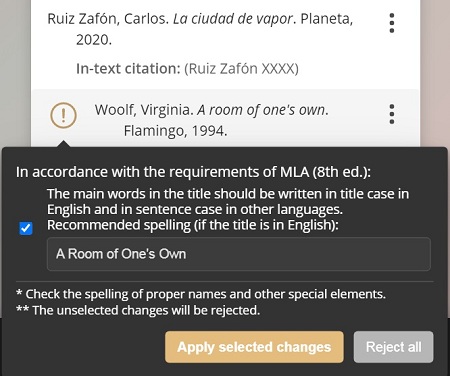 On the contrary, if you write your Spanish source's title in title case, we will warn you that it should be converted into sentence case:
On the contrary, if you write your Spanish source's title in title case, we will warn you that it should be converted into sentence case:
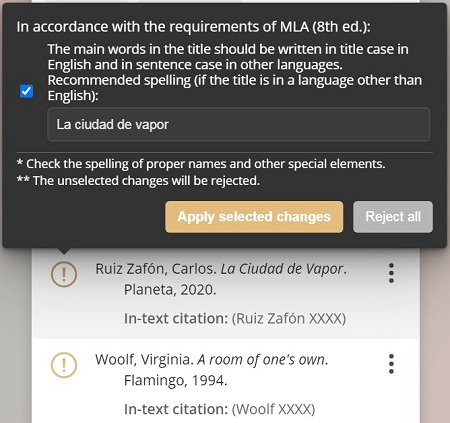 In very few cases, the programme might identify the language incorrectly, and this is why we give a note in the suggestions on when you should accept our recommendations.
In very few cases, the programme might identify the language incorrectly, and this is why we give a note in the suggestions on when you should accept our recommendations.
2. The programme analyses case errors not only in the source's title bur also in the container's title
If the source you are citing is a part of a larger container document, our analyser will display errors also for the spelling of the container's title, for example:
– journal title for the source type 'Journal article';
– newspaper title for the source type 'Newspaper article';
– book title for the source part 'Book chapter';
– etc.
For example, APA Style requires that the article title be written in sentence case and the journal title in title case for English-language sources. We will display both suggestions:
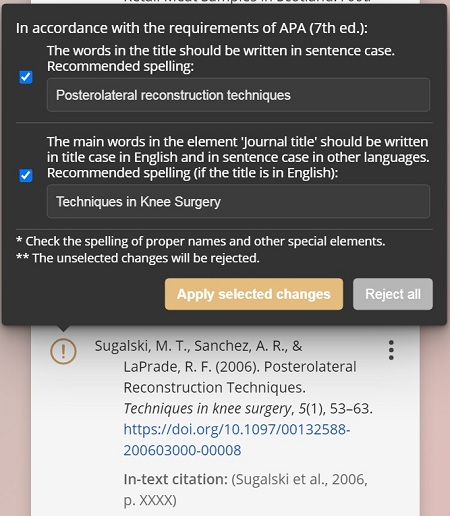 3. Analysis of the spelling of authors' names
3. Analysis of the spelling of authors' names
Should you erroneously add a name or a surname of any author in all capital letters (which might occur when you work with online databases or copy the information from a document), we will allow you correcting all authors' names in just one click:
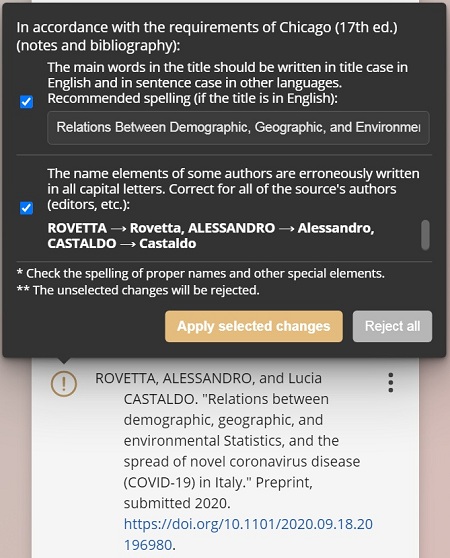
4. Detailed suggestions for subtitles
We have improved our suggestions regarding the spelling of subtitles. First, they now also depend on the identified source language. Second, whenever possible and reasonable, we will show subtitle suggestions not only for the source title but also for the container title:
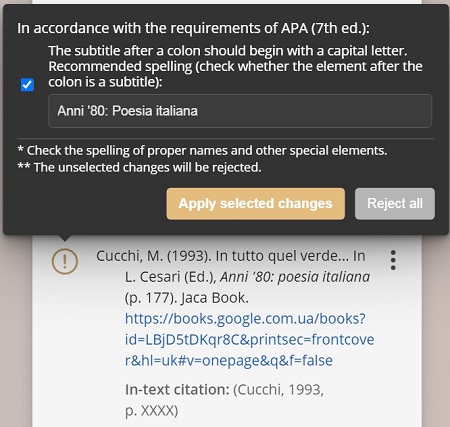
5. Other pleasant things
In addition to the aspects noted above, we will also provide some other suggestions: for instance, when you mistakenly write a sentence with the initial lowercase letter or when you forget to put a capital letter after a question mark in the title.
Let us remind you that the word case analyser is turned on by default for your bibliography. If needed, you can turn it off in your bibliography menu:
